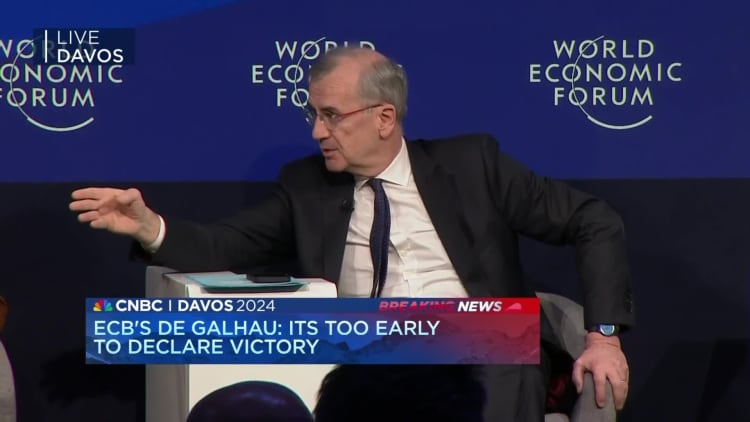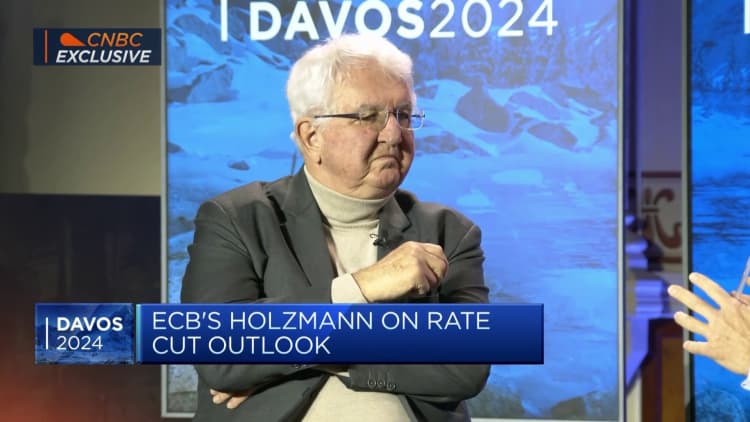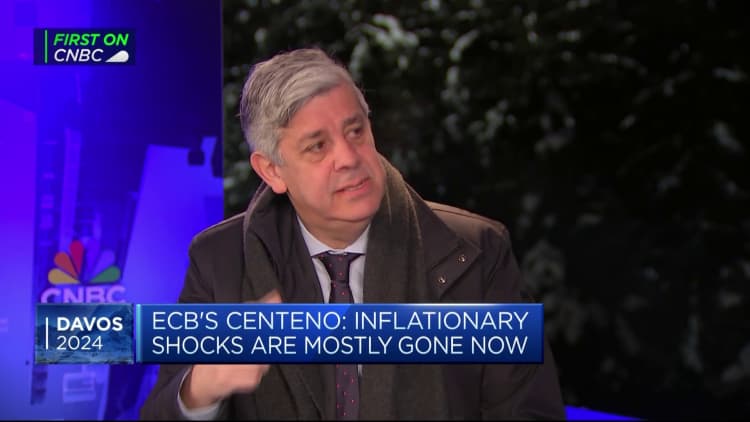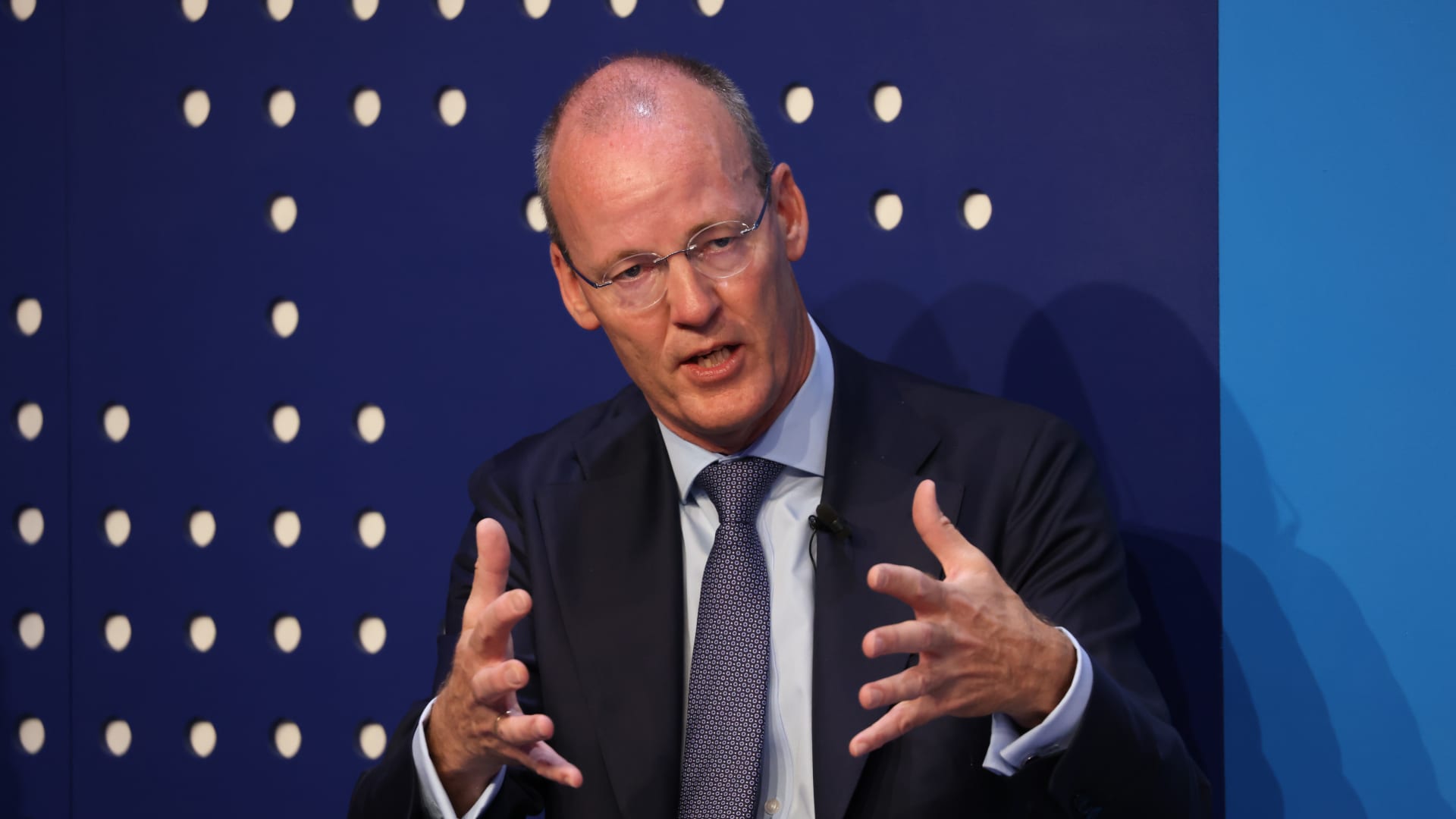Markets are “getting ahead of themselves” with rate cut expectations, the president of the Dutch central bank, Klaas Knot, told CNBC Wednesday.
“The problem for us is that in the end that might become self-defeating. We are optimistic that we have a credible prospect of a return of inflation to 2% in 2025. But a lot still needs to go well for that to happen,” European Central Bank member Knot said, speaking at the World Economic Forum in Davos.
“Underlying that projection is an interest rate path, assumed interest rate path, that contains significantly less easing than is currently embedded in market pricing. So that runs the risk to become self-defeating.”
Knot said the euro zone’s central bank looked at overall financial conditions, and that “the more easing the market has already done for us, the less likely we will cut rates.”

“I think there are expectations of our policy rate movements in current markets that we will not vindicate. Once it becomes clear to markets that we will not vindicate, I do expect some correction back to the interest rate path that was underlying our optimism of a gradual return to 2% inflation in 2025,” he added.
ECB officials at this year’s Davos have largely pushed back on market expectations for interest rate cuts starting as soon as the spring.
Austrian central bank head Robert Holzmann, an ECB arch-hawk, told CNBC on Monday that there were threats to the inflationary picture that could mean rates do not move lower at all this year.
But his more dovish colleague, Portugal’s central bank governor Mario Centeno, painted an optimistic picture of the inflation trajectory.

The ECB will stick to its plan for reducing inflation, as it battles risks from the tight labor market and geopolitical uncertainty in the Red sea, Knot said Wednesday.
“If we are going to remove some of the restriction that we currently have in place, it will be a very gradual pull back, but not a head over heels pull back,” he said, adding that more data on wages was needed.
Knot said he agreed with those who say that no further rate hikes will be needed. The ECB’s key rate is currently at a record high of 4%.
He added that the manifestation of upside risks to inflation would rather prolong the time rates are held higher.
“But it might imply that the first cut might come later than is currently anticipated,” he said.








